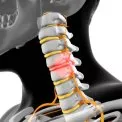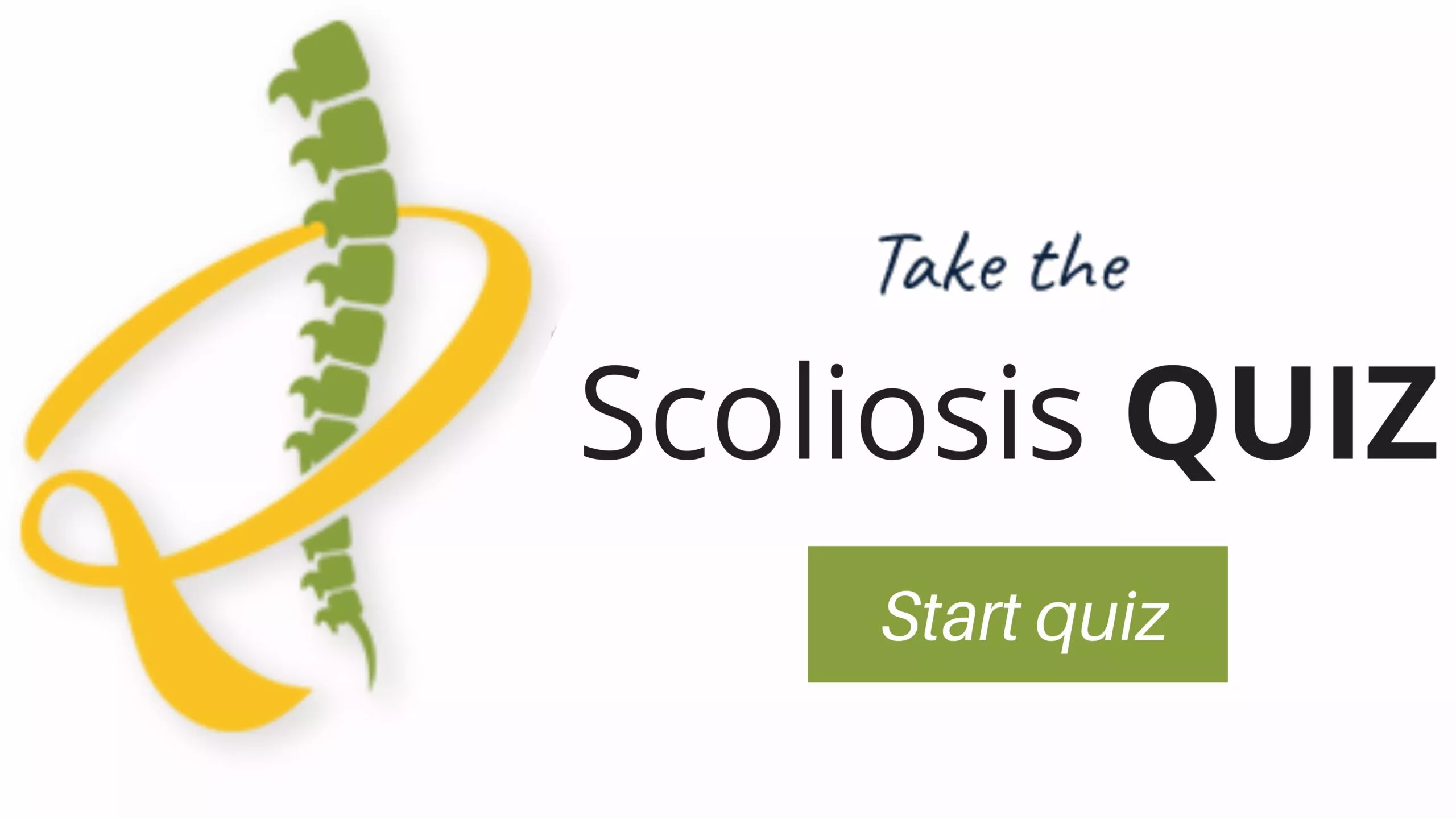
FACET JOINT ARTHRITIS
Facet joint arthritis, also known as facet syndrome, is a condition affecting the small joints located in the back. Specifically, they are between the vertebrae of your spine. These joints, lined with cartilage for smooth movement, can degenerate over time due to aging, injury, or wear and tear. This degeneration leads to the breakdown of cartilage, inflammation, and the formation of bone spurs. The result is pain, stiffness, and reduced flexibility in the neck or lower back.
At the Southwest Scoliosis and Spine Institute, our expert Facet Joint Arthritis Doctors are dedicated to diagnosing and treating spinal problems in children and adults and ensuring comprehensive care tailored to each patient’s needs. With advanced techniques and a compassionate approach, our team is here to diagnose, treat, and care for patients suffering from Facet Joint Arthritis.
3 percent of individuals with progressive curvature may eventually experience severe problems that can include scoliosis and back pain, spinal problems, and nerve compression causing numbness, weakness, and leg pain.
Facet Joint Arthritis
 Facet joint arthritis, also called facet joint pain or spine joint wear, is a condition that breaks down the small joints between spine bones. These joints help the spine move and stay stable. When arthritis hits, they get sore and stiff, making it hard to move. This can lower a person’s quality of life, causing pain and limits in movement that harm both body and mind.
Facet joint arthritis, also called facet joint pain or spine joint wear, is a condition that breaks down the small joints between spine bones. These joints help the spine move and stay stable. When arthritis hits, they get sore and stiff, making it hard to move. This can lower a person’s quality of life, causing pain and limits in movement that harm both body and mind.
Facet Joint Arthritis Causes
The main cause is the wearing down of cartilage in the facet joints. Over time, constant spine stress, bad posture, and family traits can lead to this joint wear. Past spine injuries or odd spine alignment can also speed up disc wear, raising the risk of facet joint arthritis. Additionally, previous spinal injuries and abnormal spinal alignment can clearly accelerate degenerative disc disease. This will increase the risk of facet joint arthritis.
Symptoms
Symptoms often include back pain, stiffness, and less spine movement. Pain can get worse with actions like bending back or twisting the spine. Some may feel pain spreading to the buttocks, hips, or thighs. In bad cases, it can cause spine wobbles, nerve pressure, and severe pain.
Questions and Answers
What are the typical symptoms of facet joint arthritis?
Common symptoms of facet joint arthritis include back pain, stiffness, and decreased range of motion in the spine. Pain may worsen with certain movements or actions that place stress on the facet joints, such as bending backward or twisting the spine. Some people may also have referred pain that goes down into the buttocks, hips, or thighs.
How is facet joint arthritis diagnosed?
Diagnosis of facet joint arthritis often involves a thorough medical history assessment, physical examination, and diagnostic imaging studies such as X-rays, magnetic resonance imaging (MRI), or computed tomography (CT) scans. In some cases, diagnostic facet joint injections may be performed to confirm the diagnosis and provide temporary pain relief.
What treatment options are available for facet joint arthritis?
How it is Diagnosed
To diagnose facet joint arthritis, doctors start with a full health history and physical check. This helps spot symptoms and find risk factors. Imaging tests like X-rays, MRI, or CT scans help confirm the issue. These scans show the facet joints and how much wear they have. Sometimes, doctors use facet joint shots to verify the diagnosis and give short-term pain relief.
For a test called the double-block method, doctors use two shots with numbing drugs. To pass the test, the patient must feel major pain relief, over 80% better, for a suitable time with each drug.
How Lumbar Facets Affect the Body Over Time?
Lumbar facet problems don’t stay in one spot. They can affect the whole lower back, hips, pelvis, belly, and legs, causing pain in many areas. Over time, these issues can grow worse, spreading discomfort across the body. When a lumbar facet issue is found, the treatment plan targets the exact problem, like arthritis, a break, or a joint slip. This custom plan may include non-surgical methods or surgery to fully tackle the issue and ease symptoms.
Risk Factors
Several factors can increase the risk of developing facet joint arthritis. For instance, advancing age, previous spinal injuries, repetitive spinal stress, obesity, and genetic predisposition all can cause facet joint arthritis. Individuals with occupations or lifestyles involving heavy lifting, bending, or twisting may be at a higher risk of developing arthritis in the facet joints. Additionally, certain medical conditions, such as rheumatoid arthritis or ankylosing spondylitis, can predispose individuals to facet joint degeneration and arthritis.
Non-Surgical and Surgical Treatment
Treatment of facet joint arthritis typically begins with conservative measures aimed at relieving pain and improving function. Non-surgical treatments may include over-the-counter or prescription medications to reduce inflammation and alleviate pain. Additionally, physical therapy will improve spinal mobility and strengthen supporting muscles, and lifestyle modifications such as weight management and proper body mechanics. If conservative measures fail to provide adequate relief, minimally invasive procedures such as facet joint injections or radiofrequency ablation may occur to target and disrupt pain signals from the affected joints. In cases of severe pain or spinal instability, doctors may recommend surgical options. For example, facet joint denervation, spinal fusion, or artificial disc replacement may stabilize the spine and alleviate symptoms.
Complications
Untreated or inadequately managed facet joint arthritis can lead to chronic pain, functional limitations, and decreased quality of life. Persistent inflammation and degeneration of the facet joints may contribute to spinal instability, nerve compression, and progressive disability. In severe cases, facet joint arthritis leads to complications such as spinal deformity and loss of sensation or motor function. In addition, doctors often see patients with psychological distress due to chronic pain and disability.
Physical Therapy Recommendations
Physical therapy plays a vital role in the rehabilitation of individuals with facet joint arthritis. PT focuses on improving spinal mobility, strengthening supporting muscles, and promoting proper body mechanics to reduce strain on facet joints. Therapeutic exercises, stretching techniques, and manual therapy interventions can help alleviate pain, improve posture, and enhance functional capacity. This enables individuals to resume normal activities and maintain spinal health.
Prevention Actions
Preventing facet joint arthritis involves maintaining a healthy lifestyle, practicing proper body mechanics, and avoiding excessive stress on the spine. Regular exercise can help reduce the risk of degenerative changes in the facet joints. Additionally, maintaining a healthy weight, avoiding tobacco use, and managing underlying medical conditions such as rheumatoid arthritis or ankylosing spondylitis can help preserve spinal health and reduce the likelihood of developing facet joint arthritis.
Related Conditions
Facet joint arthritis is closely related to other degenerative spinal conditions such as degenerative disc disease, spinal stenosis, and spondylolisthesis. These spinal conditions can also cause pain and functional limitations. Individuals with facet joint arthritis may also be at increased risk of developing osteoarthritis. This condition occurs in other weight-bearing joints, such as the hips or knees, due to cartilage degeneration.
Living with the Condition
Living with facet joint arthritis requires ongoing management, including regular medical monitoring, adherence to treatment recommendations. Additionally, it requires lifestyle modifications to minimize symptoms and maintain spinal health. Individuals may need to adjust their daily activities, incorporate regular exercise and physical therapy into their routine. They must seek support from healthcare providers and support networks to cope with chronic pain and functional limitations.
Long-term Benefits of Treatment and Rehabilitation
With a timely diagnosis and treatment, many individuals with facet joint arthritis can experience significant improvement in quality of life. Conservative measures such as medications, physical therapy, and minimally invasive procedures can help alleviate pain, improve function, and delay disease progression. Surgical interventions, when necessary, can provide long-term stability and symptom relief, enabling individuals to maintain independence and engage in meaningful activities.
Why Choose the Southwest Scoliosis and Spine Institute
For individuals with facet joint arthritis seeking specialized care, the Southwest Scoliosis and Spine Institute offers comprehensive services tailored to individual needs. Led by Doctors Richard A. Hostin, Devish Ramnath, and Ishaq Syed, the institute provides expertise in the management of complex spinal conditions, including facet joint arthritis. With offices in Dallas, Plano, and Frisco, Texas, the institute offers state-of-the-art diagnostic, treatment, and rehabilitation services to optimize outcomes and improve the quality of life for patients.
The multidisciplinary team of spine specialists at the institute combines advanced surgical techniques, innovative therapies, and personalized care to address the unique needs of each patient, ensuring compassionate and effective treatment throughout their journey to spinal health and recovery. Choosing the Southwest Scoliosis and Spine Institute provides individuals with access to leading experts in spinal care and a commitment to excellence in patient-centered care.
____________________
Citation: National Institute of Health – Facet Joint Arthritis
The medical content on this page has been carefully reviewed and approved for accuracy by the Southwest Scoliosis and Spine Institute’s qualified healthcare professionals, including our board-certified physicians and Physician Assistants. Our team ensures that all information reflects the latest evidence-based practices and meets rigorous standards of medical accuracy, with oversight from our expert spine doctors to guarantee reliability for our patients.
We’re here to help STOP THE PAIN
If you are an adult living with scoliosis or have a child with this condition and need a doctor who specializes in orthopedic surgery,
call the Southwest Scoliosis and Spine Institute at 214-556-0555 to make an appointment today.


